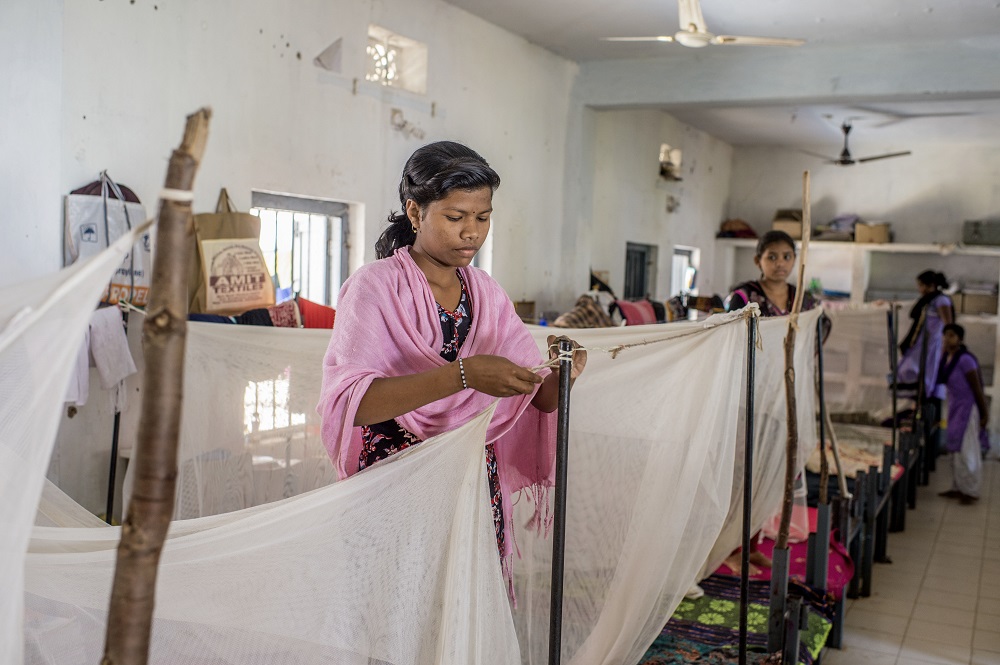Our Correspondent
New Delhi: Nearly 400 students have been infected with malaria in Odisha, undermining the government’s declaration of the eastern state as “malaria-free” six years ago.
The district of Rayagada in southern Odisha is experiencing a resurgence of the disease, particularly among school students. Over 400 students from approximately 50 institutions, predominantly run by the SC/ST (Scheduled Castes/Scheduled Tribes) department, have tested positive for malaria.
According to district health officials, blood samples from over 2,000 students have been tested, with 400 returning positive results.
Sixteen students are currently receiving treatment at the district headquarters hospital. Additional cases have been admitted to hospitals in Muniguda, Kolnara, Kalyansinghpur, SLN Medical College in Koraput, and MKCG Medical College in Berhampur. The highest number of cases, 190, have been reported from the Muniguda block.
“Regular screening of the students in various schools is being conducted,” said Additional Chief District Medical Officer Dr. Mamata Choudhury. “The disease typically surfaces during the monsoon season, exacerbated by poor sanitation and unclean surroundings.”
Despite advice for students to use mosquito nets, a shortage of malaria examination kits has hampered testing efforts. Dr. Choudhury stated that the district welfare department is addressing the need for mosquito nets in schools. District Welfare Officer Bhushan Biswal added that the collector and health directorate have been informed of the issues.
The resurgence has sparked panic among locals. Rayagada, a district prone to malaria, suffers from inadequate healthcare facilities and a lack of safe drinking water. The district headquarters hospital does not have a dedicated malaria ward, forcing patients to be treated in the general medicine ward, often on the floor due to a shortage of beds.
Despite referrals to medical colleges, the district headquarters hospital is overwhelmed. Cases have been reported from the Niyamgiri hills in Muniguda block since April 2024, yet precautionary measures have been lacking. Chief District Medical Officer Dr. Lal Mohan Routray claimed that health check-ups and treatment are ongoing, with most cases being asymptomatic and the situation under control.
Vector control measures and personal protective actions against mosquito bites are essential in combating malaria. Public awareness campaigns can help residents eliminate mosquito breeding sites and protect themselves from bites.
The National Framework for Malaria Elimination (NFME) 2016-2030 outlines India’s strategy to eradicate the disease by 2030. Despite these efforts, Odisha remains a hotspot. In 2023, the state reported nearly 42,000 malaria cases, the highest in the country, marking a significant increase from 23,770 cases in 2022, according to the National Centre for Vector Borne Diseases Control (NCVBDC). Odisha accounted for 18.7% of India’s malaria cases, followed by Chhattisgarh, Jharkhand, West Bengal, Tripura, Maharashtra, and Uttar Pradesh.
Odisha’s humid and hot climate is highly conducive to malaria transmission, with 91.5% of cases caused by Plasmodium falciparum and 8.5% by non-falciparum species. The NFME, launched in 2016, aims to eliminate malaria nationwide by 2030.
After recording 444,000 cases in 2016, Odisha launched the ‘Durgama Anchalare Malaria Nirakaran’ (DAMaN) initiative in 2017, targeting high-transmission areas. The programme involves half-yearly malaria screenings and distribution of long-lasting insecticidal nets (LLINs).
In 2023, Rayagada, Kalahandi, Malkangiri, Koraput, and Kandhamal districts reported the most cases, with Rayagada alone accounting for 9,925 cases. The rise in malaria cases has been attributed to the public’s reluctance to use insecticidal nets due to sweltering weather and the deteriorating efficacy of older nets distributed in 2019, which should have been replaced by the end of 2022.




